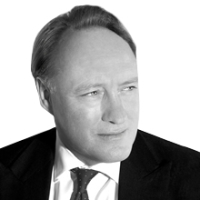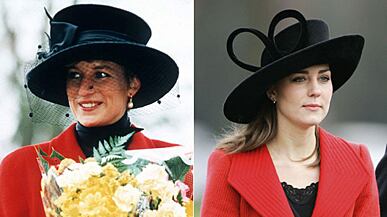Prince William and Kate Middleton have set a date—April 29—and a location—Westminster Abbey—for their royal wedding, the palace announced Tuesday. The date was chosen to coincide with the feast day of St. Catherine of Siena (Middleton’s full name is Catherine). The couple, both 28, decided against St. Paul's Cathedral, where William's father and mother married in 1981, instead opting for Westminster Abbey, chosen for its “staggering beauty,” 1,000-year royal history, and intimate feeling despite its large size, the prince’s private secretary said. The London church was also the site of Princess Diana’s funeral and Queen Elizabeth II’s wedding. Calling the wedding a “happy and momentous occasion,” Prime Minister David Cameron said the event would be a public holiday.
Andrew Roberts on why the ceremony is so important and why Kate possesses the skill to be a great asset for Britain. Plus, view our full coverage of William & Kate— photos, videos, and more.
“A princely marriage is the brilliant edition of a universal fact, and, as such, it rivets mankind,” wrote the great constitutional theorist Walter Bagehot in 1867. “A royal family sweetens politics by the seasonable addition of nice and pretty events. It introduces irrelevant facts into the business of government, but they are facts which speak to ‘men’s bosoms’ and employ their thoughts.” Bagehot was writing about the marriage of the future King Edward VII to Princess Alexandra of Denmark. But his thoughts equally apply to the forthcoming wedding of Prince William to Kate Middleton, for “One half on the throne is an interesting idea,” Bagehot also stated in his book, The English Constitution. “It brings down the pride of sovereignty to the level of petty life. No feeling could seem more childish than the enthusiasm of the English at the marriage of the Prince of Wales. They treated as a great political event, what, looked at as a matter of pure business, was very small indeed. But no feeling could be more like common human nature as it is, and as it is likely to be.” That connection between the monarchy and the best parts of our human nature has proved invaluable in the past, and will be so again, and it makes our enthusiasm over this coming wedding much more than “childish.”
The historian John Grigg described the present queen as “a bastion of stability in an age of social and moral flux.” If Queen Catherine is to attain that same level of authority she will need to continue behaving in the exemplary manner that she has ever since she started going out with Prince William. She must focus on her duties and responsibilities, even though her 28-year-old self might yearn for fun and frolics. The fact that—unlike several of our other younger royals— Miss Middleton has not been photographed emerging ruddy-cheeked and unsteady on her legs from Chelsea nightclubs in the early hours implies that she has precisely the kind of dignified self-control that has made the present queen such a formidable national asset, and so beloved.
Gallery: Kate Middleton, Princess in the Making

So as we enjoy the pomp and circumstance of next year’s nuptials, and pore over the minutiae of the invitation list, wedding dress, honeymoon, and other enticing social aspects of the occasion, we ought to recall that this is also a profoundly important historical and constitutional moment in the long story of an ancient monarchy.
Historian Andrew Roberts' latest book, Masters and Commanders , was published in the UK in September. His previous books include Napoleon and Wellington, Hitler and Churchill, and A History of the English-Speaking Peoples Since 1900 . Roberts is a fellow of the Royal Society of Literature and the Royal Society of Arts.





